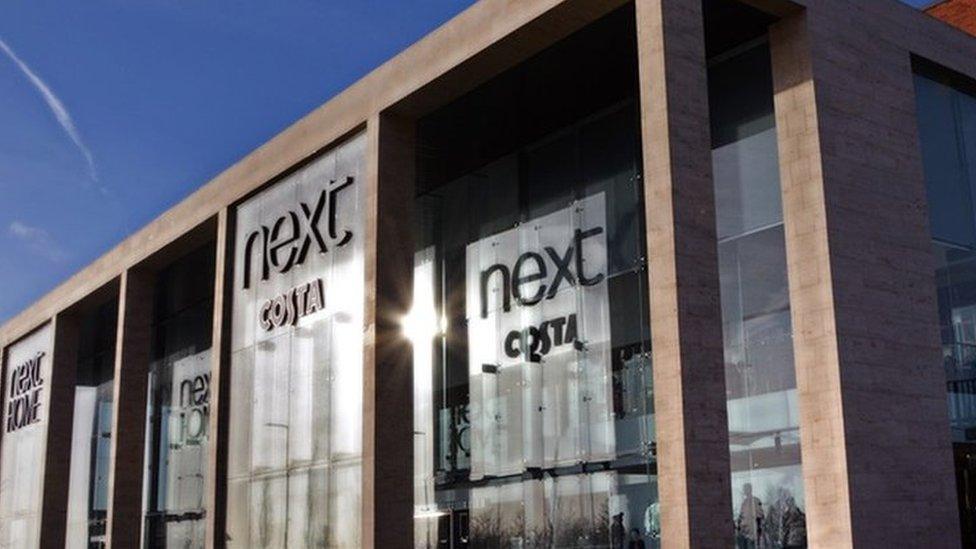Brexiteer Lord Wolfson warns over cuts to immigration
- Published
Next boss: "Dangerous to bring migration down to tens of thousands"
One of the business world's most prominent campaigners for Brexit has told the BBC that a big reduction in immigration will damage the UK economy.
Lord Wolfson, chief executive of Next, said: "Any move to reduce immigration to the tens of thousands would be very dangerous for the economy."
It sounds, at first, like a curious thing for a Leave voter to say.
But Lord Wolfson insists that immigration was NOT the key issue for many who wanted out of the EU.
Now the result is in, he hopes new alliances can be struck between members of both sides which will be good for business.
Speaking exclusively to the BBC, Lord Wolfson said: "I believe we should gain some control but we can either try and trade our way out of this mess or we can try and protect ourselves by erecting barriers to trade and movement of people. If we try and protect our way out of this, we are doomed."
That may be good for business, but many voters will feel that is not the prospectus they were offered by a Leave campaign that he sided with.
I put it to him that if immigration is not reduced below 100,000 in a few years time, many voters will feel betrayed. "I voted Leave and I certainly won't feel betrayed - you only have to go into our hospitals and other services to see the vital role immigrants play in our country."

He also responded to warnings from the new Chancellor, Phillip Hammond, that the vote had had a "chilling effect" on business confidence and investment, stating that Next had no plans to change its own investment plans.
The peer called on the new prime minister to set the UK's direction of travel towards an open, competitive and global economy. If that happens, investment will follow at home and from abroad.
It's not clear that the new prime minister is in the mood to do the bidding of business leaders.
Theresa May has made them an early target in her opening salvos.
High executive pay, the narrow gene pool from which directors are drawn, rapacious takeovers and low worker wages have all featured on her hit list as she tries to reach out to voters who feel left out of the UK's economic success.
"It's not anti-business to suggest that big business needs to change," said the PM.
She wants to put employee and consumer groups in the boardroom and have annual binding votes on bosses pay.
Lord Wolfson said whether or not this "rhetoric" became reality would make little difference to the UK economy. "If it happens, it happens, but to do that and that alone would miss the big opportunity, which is to liberate our housing, road building and energy sectors. These are the things the country really needs."
The new PM is taking a tough line on business. but she'll also need to keep them on side if they are to do their bit to shore up confidence in a post-Brexit economy.